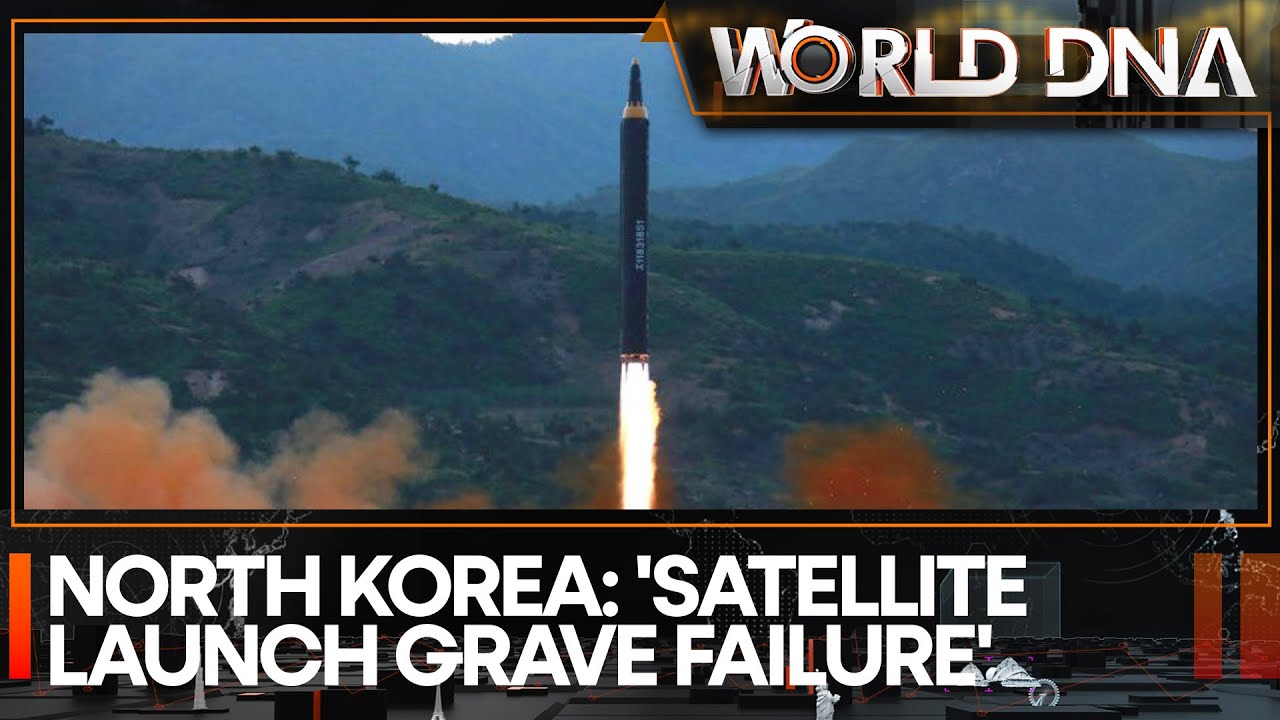North Korea's Second Attempt To Launch Spy Satellite Ends In Failure
In a setback to it's space ambitions, North Korea's second attempt to launch spy satellite ends in failure.
Author:Suleman ShahReviewer:Han JuAug 24, 20231.6K Shares62.1K Views

In a setback to it's space ambitions, North Korea's second attempt to launch spy satellite ends in failure.
The move highlights the regime's determination to acquire key military assets despite encountering flops in its endeavors.
The launch, which used the new Chollima-1 rocket, aimed to put the reconnaissance satellite Malligyong-1 into orbit.
However, an error in the emergency blasting system during the third-stage flight caused the launch to fail.
North Korea's space agency, the National Aerospace Development Administration (NADA), plans to make a third launch attempt in October.

North Korea’s spy satellite launch ends in failure, vows to send up another | WION
Japanese Evacuation And International Reactions
The rocket's flight prompted Japan to issue a "J-alert" to evacuate some residents from areas where the rocket's trajectory posed a potential risk.
South Korea's Joint Chiefs of Staff detected the rocket flying above international waters off the Korean Peninsula's west coast.
The launch violated U.N. Security Council resolutions that prohibit North Korea from using ballistic technologies.
The international community, including the U.S. and South Korea, condemned the launch as a provocation and a threat to regional stability.
North Korea's Persistence And Future Prospects
Despite the repeated failures, North Korea's leader, Kim Jong Un, remains committed to achieving his objectives. The regime's willingness to endure setbacks showcases its determination to pursue its long-term ambitions.
Experts suggest that Kim may use these failures as stepping stones for future success.
North Korea's missile testing has been prolific, with around 100 missile tests conducted since the beginning of 2022, reflecting the regime's efforts to modernize its weapons arsenal.
While North Korea's endeavors persist, challenges remain on its path to acquiring functional nuclear missiles.
The U.N. Security Council's inability to adopt further sanctions highlights the divisions among permanent members, including Russia and China.
These nations oppose imposing more sanctions on North Korea due to various geopolitical factors.
The failed satellite launch underscores North Korea's determination to enhance its military capabilities despite international opposition and setbacks.
North Korea's pursuit of spy satellites and other advanced weapons systems adds complexity to regional security dynamics.
Its intentions to bolster its nuclear deterrent and achieve military superiority will likely influence the responses and strategies of neighboring countries.
The failure of the satellite launch serves as a reminder of North Korea's commitment to its military objectives, challenging its adversaries to adapt their approaches accordingly.
Final Words
North Korea's recent failed attempt to launch a spy satellite highlights the regime's determination to overcome setbacks and pursue its military ambitions.
Despite international condemnation and technical challenges, Kim Jong Un's persistence showcases his commitment to enhancing the country's military capabilities.
As neighboring countries and the international community grapple with North Korea's continuous testing and advancements, regional security dynamics are likely to evolve in response to the regime's unwavering pursuit of its goals.

Suleman Shah
Author
Suleman Shah is a researcher and freelance writer. As a researcher, he has worked with MNS University of Agriculture, Multan (Pakistan) and Texas A & M University (USA). He regularly writes science articles and blogs for science news website immersse.com and open access publishers OA Publishing London and Scientific Times. He loves to keep himself updated on scientific developments and convert these developments into everyday language to update the readers about the developments in the scientific era. His primary research focus is Plant sciences, and he contributed to this field by publishing his research in scientific journals and presenting his work at many Conferences.
Shah graduated from the University of Agriculture Faisalabad (Pakistan) and started his professional carrier with Jaffer Agro Services and later with the Agriculture Department of the Government of Pakistan. His research interest compelled and attracted him to proceed with his carrier in Plant sciences research. So, he started his Ph.D. in Soil Science at MNS University of Agriculture Multan (Pakistan). Later, he started working as a visiting scholar with Texas A&M University (USA).
Shah’s experience with big Open Excess publishers like Springers, Frontiers, MDPI, etc., testified to his belief in Open Access as a barrier-removing mechanism between researchers and the readers of their research. Shah believes that Open Access is revolutionizing the publication process and benefitting research in all fields.

Han Ju
Reviewer
Hello! I'm Han Ju, the heart behind World Wide Journals. My life is a unique tapestry woven from the threads of news, spirituality, and science, enriched by melodies from my guitar. Raised amidst tales of the ancient and the arcane, I developed a keen eye for the stories that truly matter. Through my work, I seek to bridge the seen with the unseen, marrying the rigor of science with the depth of spirituality.
Each article at World Wide Journals is a piece of this ongoing quest, blending analysis with personal reflection. Whether exploring quantum frontiers or strumming chords under the stars, my aim is to inspire and provoke thought, inviting you into a world where every discovery is a note in the grand symphony of existence.
Welcome aboard this journey of insight and exploration, where curiosity leads and music guides.
Latest Articles
Popular Articles